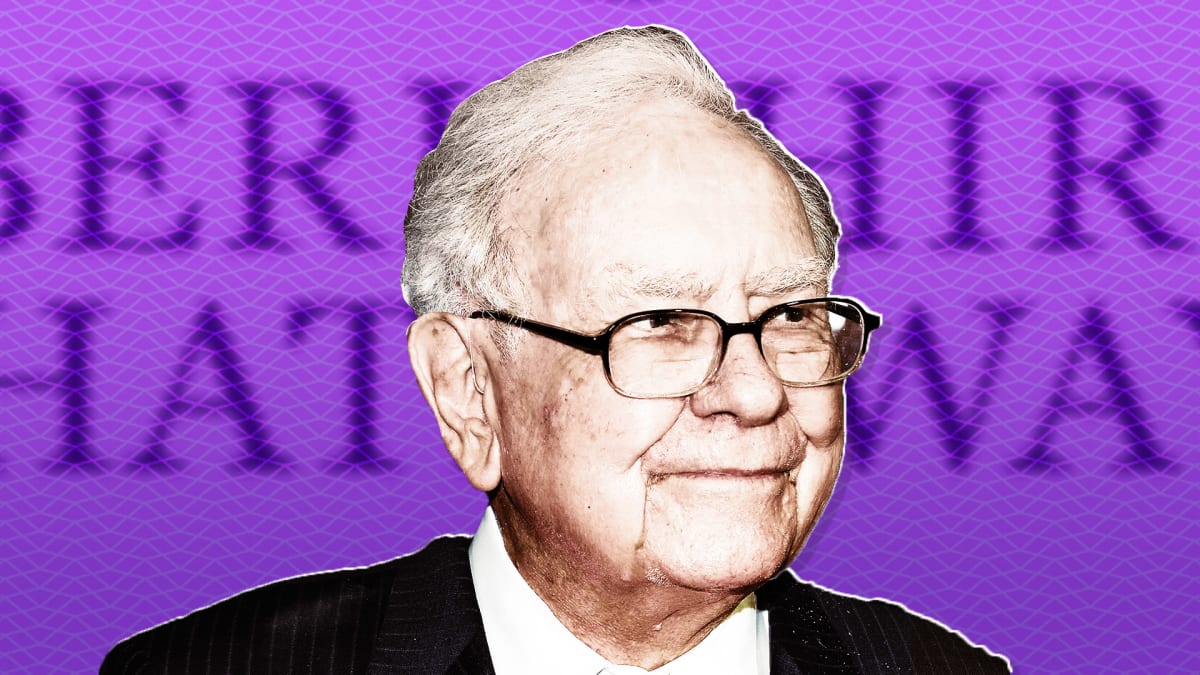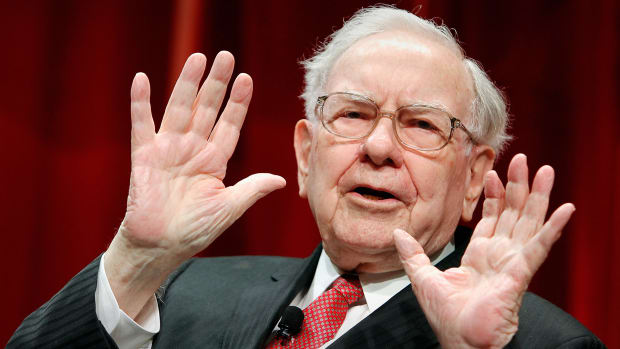
Warren Buffett is one of the most successful stock pickers in history, so it’s not shocking that many want to follow in his footsteps. The Oracle of Omaha is one of the world’s wealthiest people, but the billionaire didn’t make his money by broadcasting his best ideas to everybody.
Instead, he made his fortune by betting against the crowd, keeping his stock picks a secret while he bought and sold to prevent others from piggybacking on his coattails. As a result, unless you’re in his inner circle, you’re unlikely to know what’s on his investing to-do list.
Fortunately, Warren Buffett’s investment firm, Berkshire Hathaway, must detail its holdings quarterly when it files Form 13F with the Securities and Exchange Commission. These quarterly reports offer insight into what stocks are on Warren Buffett’s radar.
For example, Berkshire Hathaway’s first-quarter 13F report was filed with the SEC on May 15. The report shows that Buffett, or likely, his portfolio managers Todd Combs and Ted Weschler, took new positions in three stocks during the first quarter, including one stock likely to raise eyebrows.

Image source: Paul Morigi/Getty Images for Fortune/Time Inc
First, what’s a 13F?
Form 13F is required to be filed with the Securities and Exchange Commission by the Securities and Exchange Act of 1934. The Act established the SEC to regulate investment companies buying and selling securities on exchanges, such as the New York Stock Exchange and the NASDAQ.
DON'T MISS: 9 Highlights From Warren Buffett’s Annual Berkshire Hathaway Meeting
The Act was created to provide transparency and accountability in the wake of the Stock Market Crash in 1929. Many believed the crash was due to insufficient oversight leading to reckless investment behavior. Curtailing bad behavior on Wall Street was a focus in the 1930s, given the 1929 crash contributed to the Great Depression.
Not every money manager files a 13F. For example, only investment advisors with $100 million or more in assets under management must provide it to the SEC within 45 days of the end of a quarter.
Regardless, these reports are highly anticipated because money managers are otherwise reluctant to share real-time insight into their buying and selling. Since it takes time for large hedge funds, mutual funds, and registered investment advisors to accumulate or divest positions, disclosing positions can negatively impact returns if it means individual investors' front-run activity.
Warren Buffett buys Capital One, despite banking woes
Berkshire Hathaway’s latest 13F filing showed three new positions during the first quarter of 2023: Diageo plc (DEO), Vitesse Energy VTS, and Capital One (COF).
Diageo isn’t really a new position. though. Berkshire Hathaway merged with General Re in 1998. Since then, General Re’s stock positions, including Diageo, were disclosed by General Re’s subsidiary New England Asset Management Inc. on its 13F. That changed this quarter when General Re’s holdings were consolidated into Berkshire’s filing.
Vitesse Energy is a new holding, but it was a spin-off from Jefferies, another company in Berkshire’s portfolio that was acquired in Q3, 2022.
Therefore, Capital One is the only truly new position Buffett or his team added to the portfolio in the first quarter. Given economic worries and the recent banking crisis, it may be a surprising choice.
Capital One is one of the largest issuers of credit cards and originators of auto loans, both of which have seen a spike in delinquency and default rates this past year. For example, Capital One’s net charge-off rate rose to 4.26% in April from 2.19% one year ago.
It hasn’t helped credit card issuers like Capital One that inflation has squeezed consumers. Wages have broadly lagged rising costs. As a result, consumers have less financial wiggle room than a couple of years ago. The strain on consumer wallets has led to increasing levels of credit card debt, despite interest rates on newly issued credit cards eclipsing 20% -- a record.
Consumers may continue to struggle if the jobs market worsens. Job openings slipped to 9.59 million in March from 9.97 in February, signaling a weakening in the employment market. Additionally, initial jobless claims totaled 264,000 in the week ended May 6 – the highest since October 30, 2021.
That’s discouraging but not a deal breaker. Warren Buffett is a value investor, so his positions often cut against the grain. Instead, his focus is finding good companies at fair prices, and Capital One’s stock is undeniably less expensive than before last year's bear market. It peaked near $180 in August 2021, but shares now trade around $90.
Is Capital One's stock cheap?
Analysts have grown concerned about Capital One’s earnings, leading them to reduce their estimates for 2023. Nevertheless, it’s still expected to deliver earnings per share of $12.04 this year. As a result, shares are trading at a price-to-earnings ratio of 7.6. That’s not overly pricey, but it’s not cheap either. Capital One’s average P/E over the past five years is 6.8, using trailing 12-month earnings.
Capital One does appear to be a better bargain based on its price-to-book ratio. Price to book is calculated by dividing share price by assets minus liabilities, providing insight into a company’s break-up value. Its P/B ratio is 0.71, down from 0.86 in March 2022. The average P/B ratio over the past five years is 0.90.
I wouldn't call Capital One cheap, but it may qualify as a fair price if the economy sidesteps a recession.
Is buying Capital One a mistake?
Berkshire Hathaway owned 9.9 million Capital One shares on March 31, a roughly $954 million stake that makes it Capital One’s 10th largest shareholder.
Unfortunately, 13F’s don’t specify the exact timing or the price Berkshire Hathaway paid. Therefore, it may have acquired Capital One before Silicon Valley Bank’s failure in March. If so, Buffett is likely losing money on the investment, given that Capital One’s shares have fallen by more than 20% since late January.
Warren Buffett has increasingly delegated decisions on smaller positions to his portfolio managers Ted Weschler and Todd Combs. Berkshire Hathaway’s portfolio eclipses $325 billion, so at less than $1 billion, Capital One is a small enough position to wonder if this wasn’t a buy decision made by Buffett.
Buying Capital One also seems to conflict with other decisions made by Buffett last quarter. He’s been selling banks, and last quarter, he exited Bank of New York (BK) and U.S. Bancorp (USB) while also selling some shares in Ally Financial (ALLY), the nation’s second-largest auto lender behind Capital One. However, Buffett did decide to hold onto his sizeable stake in Bank of America (BAC), which he’s owned since providing it with a financial lifeline in 2011.
The decision to buy Capital One stock may have been made by another one of Berkshire Hathaway’s portfolio managers, so investors may want to wait for more evidence of an improving economy before buying, especially since we don’t know if Berkshire Hathaway plans to continue owning shares given the recent banking debacle.
Don't Miss: Should Buffett buy this cheap stock? (We did!)







